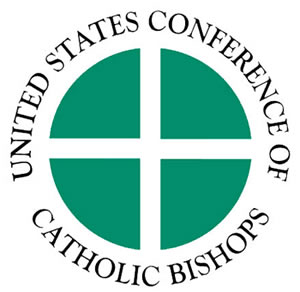By US Conference of Catholic Bishops -
Given the recent tragedy in Parkland's Marjory Stoneman Douglas High School, and the ongoing debate on gun control, we thought it appropriate to publish this "Backgrounder on a Mercy and Peacebuilding Approach to Gun Violence," which was originally issued by the U.S. bishops in January 2016.
"I appeal forcefully to all those who sow violence and death by force of arms: in the person you today see simply as an enemy to be beaten, discover rather your brother or sister, and hold back your hand! Give up the way of arms and go out to meet the other in dialogue, pardon and reconciliation, in order to rebuild justice, trust, and hope around you!" Pope Francis, Jan. 1, 2014
BACKGROUND:
In the aftermath of tragic events such as the shooting in San Bernardino, California and the daily examples of violence witnessed in our communities and homes, we are urged to respond to Pope Francis' call to lay down our arms and exercise the greater courage of peacemaking. There are countless examples: Ferguson, New York City, Charleston, Sandy Hook, Columbine, Virginia Tech, mall and cinema shootings in Oregon and Colorado, attacks in Paris, Beirut, and the various wars engaged in as broader expressions of this habit. Tragically, gun violence in the U.S. (353 mass shootings in 2015), domestic violence, the global illicit trade of weapons and ammunition, war, terrorism and other acts that strike at the life and dignity of persons, are an all too common reality. More than ever, the Church and all people of good will must work together to confront the pervasive culture of violence.

The Church has been a consistent voice for the promotion of peace at home and around the world and a strong advocate for the reasonable regulation of firearms. Christ's mercy must guide us. The Church recognizes that recourse to self-defense is legitimate but also that guns are simply too easily accessible. The Vatican's Pontifical Council for Justice and Peace, in their document, The International Arms Trade (2006), emphasized the importance of enacting concrete controls on handguns noting, "Limiting the purchase of such arms would certainly not infringe on the rights of anyone." It is not enough to only talk about peace. Those who put mere profit over peacebuilding and are not thoughtful about how their products and innovation, which are plainly designed to wound and kill human beings, might contribute to unnecessary violence have much to account for. Pope Francis tells us that "those who speak about peace while promoting war, for example through the sale of weapons, are hypocrites. It is very simple." (Pope Francis June 8, 2015).
USCCB POSITION:
The USCCB has also been a consistent advocate for peace and the prevention of gun and other forms of violence that strike at the life and dignity of persons. In 1994, recalling the words of Pope Paul VI, "if you want peace, work for justice," the U.S. bishops issued their pastoral message, Confronting a Culture of Violence: A Catholic Framework for Action. In their message the bishops stated, "We have an obligation to respond. Violence -- in our homes, our schools and streets, our nation and world -- is destroying the lives, dignity and hopes of millions of our sisters and brothers." The USCCB was also a supporter of the Assault Weapons Ban initially passed in 1994 but which expired in 2004.
In 2000, the U.S. bishops issued their pastoral statement, Responsibility, Rehabilitation, and Restoration: A Catholic Perspective on Crime and Criminal Justice. In the statement the bishops called for all people to work for a culture of life and to do more to end violence in our homes and to help victims break out of patterns of abuse. In regard to gun violence prevention the bishops wrote, "We support measures that control the sale and use of firearms and make them safer (especially efforts that prevent their unsupervised use by children or anyone other than the owner), and we reiterate our call for sensible regulation of handguns."
In addition to gun violence, the U.S. bishops have also addressed domestic violence. In their 2002 statement, When I Call for Help: A Pastoral Response to Domestic Violence Against Women, the bishops emphatically declared that violence against women, inside or outside the home, is never justified and that violence, whether physical, sexual, psychological or verbal, is immoral. The bishops also acknowledged the toll domestic violence takes on men but especially children who are particularly sensitive to the impacts of such evil acts.
Tragic attacks on human life such as what occurred in San Bernardino, California and Newton, Connecticut and which happen daily in homes and communities around the word, should lead us to live out a life committed to not only peace but mercy. Pope Francis says that every one of us is "called to make compassion, love, mercy and solidarity a true way of life, a rule of conduct in our relationships with one another" (Pope Francis, 2016 Message for World Day of Peace). Together we must confront a culture � which at times glamorizes or displays callous indifference to violence � with love, mercy and peace and provide witness on behalf a culture of life.
ACTION:
The USCCB will remain engaged in the public debate on gun violence prevention. We call on Catholics and all people of good will to urge their Senators and Representative to support policy and legislative measures that:
- a) promote mercy and peacebuilding in our communities by implementing reasonable regulations on firearms such as: Require universal background checks for all gun purchases; Limit civilian access to high-capacity weapons and ammunition magazines; Make gun trafficking a federal crime, and; Improve access to mental health care for those who may be prone to violence,
- b) promote restorative justice by passing legislation to support important reentry programs that help people avoid re-offending,
- c) improve access to health care and treatment for those with addiction and mental health needs.
Related stories

